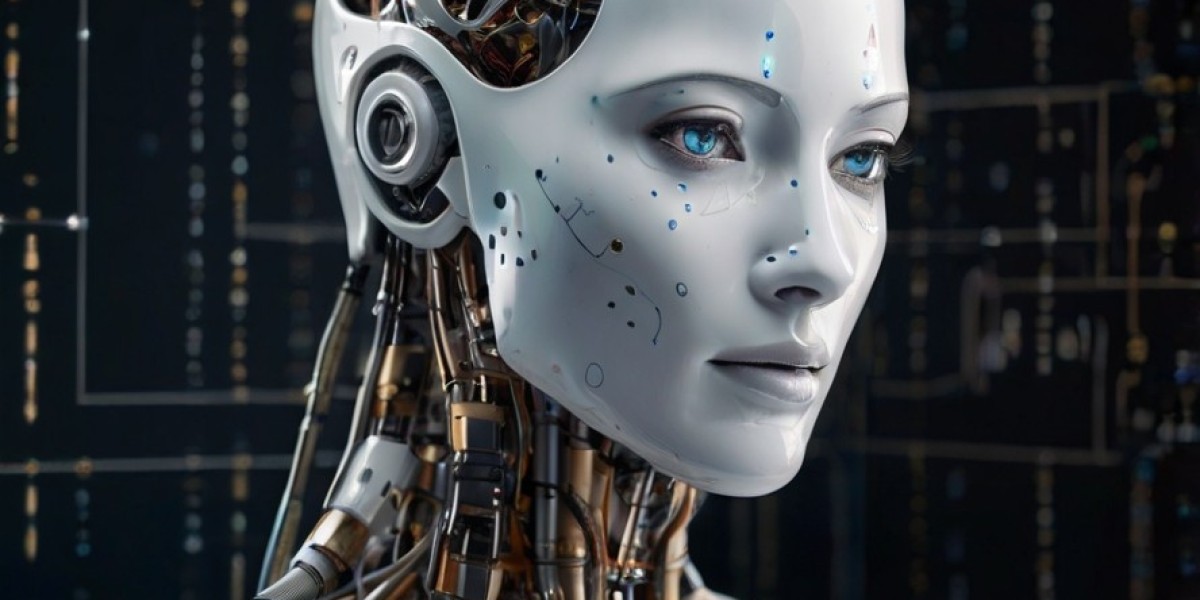Introduction
In recent years, artificial intelligence (AI) has made significant advancements across various fields, with chatbots being a prime example of how AI technology is transforming interactions between humans and machines. Chatbots are software applications that can simulate conversation with users through text or voice interactions. They are increasingly popular in customer service, healthcare, finance, entertainment, and many other areas. This report explores the definition, types, functionality, benefits, challenges, and future of AI chatbots.
What is an AI Chatbot?
An AI chatbot refers to a computer program designed to communicate with human users in a natural language format, either through text or voice. They utilize machine learning algorithms, natural language processing (NLP), and other AI technologies to understand user input and generate appropriate responses. Unlike traditional chatbots, which operate on pre-set rules and scripts, AI chatbots learn from interactions, improving their performance over time.
Types of AI Chatbots
AI chatbots can be broadly classified into two categories:
1. Rule-Based Chatbots
These are the most basic form of chatbots programmed to respond to specific commands and queries. They operate on predefined rules and logic, which limit their ability to handle complex conversations. Rule-based chatbots can provide quick answers to frequently asked questions, but their capabilities are restricted, and they often fail to understand user intent if the input deviates from the scripted responses.
2. AI-Powered Chatbots
Unlike rule-based systems, AI-powered chatbots use machine learning and natural language processing to understand and interpret user input more dynamically. These chatbots are capable of engaging in more sophisticated conversations, learning from previous interactions, and adapting their responses based on user behavior. AI-powered chatbots can recognize patterns in data, allowing them to provide personalized experiences, making them far more effective in addressing diverse inquiries.
Functionality of AI Chatbots
AI chatbots function through several crucial components, including natural language understanding (NLU), dialogue management, and response generation.
1. Natural Language Understanding (NLU)
NLU is a branch of NLP focused on enabling machines to understand and interpret human language. It involves various tasks, such as speech recognition, sentiment analysis, and intent recognition. NLU allows chatbots to break down user input into meaningful components, identifying the intent and key information required to provide an accurate response.
2. Dialogue Management
Dialogue management refers to the process of maintaining the context and flow of a conversation. AI chatbots use algorithms to determine the appropriate course of action based on the input received and the conversation history. This involves deciding how to respond, whether to ask clarifying questions, or redirect the conversation based on user intent.
3. Response Generation
Once a chatbot understands the user input and manages the dialogue, it must generate a suitable response. This can be achieved through predefined templates or more advanced generative models, which create responses on the fly based on the context of the conversation. The goal is to provide users with relevant and coherent answers that promote engagement and satisfaction.
Benefits of AI Chatbots
The increasing adoption of AI chatbots brings numerous advantages, including:
1. Enhanced Customer Service
AI chatbots provide 24/7 customer support, addressing user inquiries outside of regular business hours. They can handle a high volume of requests simultaneously, reducing wait times and improving overall customer satisfaction. By automating routine inquiries, businesses can allocate human resources to focus on more complex issues.
2. Cost Efficiency
Implementing AI chatbots can significantly reduce operational costs associated with customer service. By minimizing the need for human agents to handle basic queries, companies can save on labor costs and invest in other areas of their business.
3. Personalization
AI chatbots can analyze user data to offer personalized experiences. By understanding user preferences and behavior, chatbots can provide tailored recommendations, enhancing user engagement and satisfaction. Personalization is essential in building customer loyalty and fostering long-term relationships.
4. Scalability
AI chatbots can easily scale to handle increasing volumes of inquiries without compromising service quality. This makes them particularly valuable for businesses experiencing rapid growth or seasonal fluctuations in demand.
5. Data Gathering and Analysis
AI chatbots can collect valuable data on user interactions, preferences, and feedback. This data can be analyzed to identify trends, preferences, and potential areas for improvement. Businesses can leverage these insights to enhance their products, services, and overall customer experience.
Challenges of AI Chatbots
Despite their many benefits, AI chatbots also face challenges that can impact their effectiveness:
1. Understanding Context and Nuance
While AI chatbots have made significant strides in language processing, they may still struggle to understand context, idiomatic expressions, or emotional nuance. This can lead to misunderstandings and frustrated users, especially in cases that require empathetic responses.
2. User Acceptance
Some users may be hesitant to interact with chatbots due to concerns about data privacy and security. Additionally, users may prefer human interaction for certain inquiries. Companies must balance automated solutions with human support to address user preferences effectively.
3. Limited Knowledge Base
AI chatbots rely on extensive datasets to learn and provide accurate responses. If a chatbot's knowledge base is limited or outdated, it may lead to incorrect or irrelevant responses. Continuous updates and training are essential ChatGPT For Creating Personalized Content maintaining performance.
4. Technical Issues
As with any technology, AI chatbots may encounter technical glitches or malfunctions. Ensuring robust performance and resolving issues promptly is crucial to avoiding negative user experiences.
Future of AI Chatbots
The future of AI chatbots promises continued advancements that will enhance their capabilities and applications:
1. Improved Natural Language Processing
As NLP algorithms become more sophisticated, AI chatbots will better understand and interpret human language, including slang, idioms, and various languages. This will improve communication and enhance user experiences.
2. Integration with Other Technologies
AI chatbots will increasingly integrate with other systems and platforms, such as customer relationship management (CRM) software, social media, and e-commerce platforms. This will allow for seamless interactions across various customer touchpoints and a more unified user experience.
3. Conversational AI
Advancements in conversational AI will enable chatbots to engage in more fluid, multi-turn dialogues, resembling human conversations more closely. Users will be able to hold natural conversations with chatbots, improving satisfaction and usability.
4. Enhanced Personalization
AI chatbots will leverage machine learning to deliver even more personalized experiences based on individual user preferences and interactions. The ability to anticipate user needs and provide tailored recommendations will further enhance engagement.
5. Ethical Considerations
With the rise of AI technologies, ethical concerns surrounding privacy, bias, and accountability will become increasingly important. The future of AI chatbots will involve addressing these concerns by implementing transparent practices, safeguarding user data, and ensuring fairness in AI-driven interactions.
Conclusion
AI chatbots have transformed how businesses and consumers interact, providing numerous benefits such as enhanced customer service, cost savings, and personalized experiences. As technology continues to evolve, AI chatbots will become more intelligent, capable, and integrated into various industries, addressing challenges and capitalizing on opportunities. By embracing these advancements, organizations can foster stronger relationships with their customers and navigate the future of AI-driven interactions with confidence. The future of AI chatbots is promising, paving the way for more seamless and engaging communication between users and machines.








